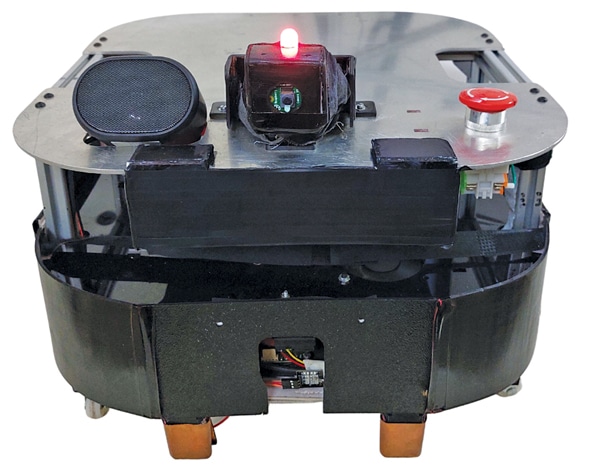Mobile robotics developer and founder SriKrishna of startup SeiAnmai Technologies has developed a compact indoor robot, ToTo, for telepresence through I-Hub Foundation for Cobotics (IHFC) IIT Delhi’s READY programme.
The ToTo robot, developed by SeiAnmai Technologies, is a compact indoor robot designed for telepresence. It aims to replicate the experience of being present in a remote location, primarily focusing on teleoperation and teleobservance functionalities. The robot’s applications include scenarios in hospitals, inspecting locations with entry restrictions, and tasks in challenging environments such as cold storage.

“This robot functions as a mobile visual medium with a two-wheeled design specifically tailored for flat surfaces and can map the entire floor area. Users can select any point on the floor plan, and the robot will autonomously navigate there while avoiding obstacles. It provides a video feed through the camera and comes with a microphone and speaker for interaction. The robot’s top is a plain canvas for users to attach a robotic arm, sensor, or any mechanism relevant to their research,” explains SriKrishna.
According to SriKrishna, the hardware technology stack comprises a Raspberry Pi 4 and a customised robot operating system (ROS) for an open and versatile platform. Powered by a LiPo battery, the robot autonomously navigates to the charging dock for recharging, ensuring continuous use. It has built-in safety features for collision avoidance and flexibility for user experimentation.
The robot uses lidar to calculate distances, map the environment, and detect obstacles. A camera is utilised as a complementary sensor to observe the surroundings. One might wonder why a video call can’t achieve the same results. SriKrishna explains that the robot offers autonomy, eliminating the need to direct someone else during a video call. The robot provides complete control to remote users, allowing them to choose angles and navigate the robot.

“We also have a front-facing infra-red sharp sensor to address limitations in the lidar’s perspective, ensuring the robot can detect small ledges or steps. This feature prevents the robot from unintentionally falling off the edges. We aim to simplify the sensor setup with minimal sensors to facilitate operation in various environments while avoiding complexity, increased development efforts, and higher costs,” elaborates SriKrishna.
The robots have their communication platform developed by
SeiAnmai Technologies, which allows the transfer of video and metadata. They use a customised version of Google’s WebRTC, which allows peer-to-peer communication using the server for routing, causing an improvement in latency. This is paired with SeiAnmai’s Tech’s custom UI for controlling the robot.








